‘I am feeling good. After Roger Bannister in 1954 it took another 63 years. I tried and I did not get it – 65 years. I am the first man. I want to inspire many people, that no human is limited.’ [Eluid Kipchoge, Worlds Greatest Marathoner]
I am in one of the top hotels in one of the eastern Kenya counties. From my vantage point at the rooftop of this open facility, my eyes scan the environment and appreciate the green forested hills that majestically rise from the ground.
I have taken a deserved break from the mentally and intellectually tiring work of developing a training programme for one of the counties in the lake-side region. I am keen to follow the celebration of Heroes Day falling on 20th October 2019, locally known as “Mushujaa Day” being beamed live from the coastal county of Mombasa.
I am curious to witness our Coast guards equipment and machinery who will be part of the spectacular show, but more importantly, I want to witness the honouring of Eluid Kipchoge, one of the true “shujaas”.
I am expecting to be joined at the table by three of my colleagues assisting in the development of the county programme. The first to arrive is the heavily bearded Mpenda Kitabu, a professor of engineering. So we are joined Prof Kizito, a management specialist and Sakina-Mapenzi, a lady professor in Philosophy
Prof Mpenda Kitabu
“Hallo Prof,” he shook my hand so hard that I was scared he would pull my arm out of its socket. “This country is actually full of challenges and we need to challenge ourselves. I took a challenge to come and assist you develop this training programme. It consumes a lot of intellectual energy especially mentally. But I accepted to be challenged and I challenged the knowledge.”
“Have you noticed that the table is dancing?” I am surprised at this observation and he quickly summons the waiter whose solution to the problem is to place a bottle top under one of the stands and just like that the table is stable.
My favourite drink, a dark, thick, diesel looking ice-cold beer arrives accompanied with an equally cold Cola. I take a long swig of the heavenly mix before responding to Mpenda Kitabu
ME
“Waiter, please serve the good professor,” I direct the waiter. As the professors’ order is being taken, I take advantage to respond to his statement. “Self-discipline starts with you. It’s no other person. It starts with you. Start to examine yourself Prof….…Self-discipline is doing what’s right instead of doing what you feel like doing.”
I espy my two other colleagues and whisper to the professor, “Here comes the philosopher, so be careful on what you say, she is accompanied by the management guru Prof Kizito”
Prof Sakina-Mapenzi
“I overheard your conversation as we were coming out of the lift. You know the engineer’s voice can be heard even from one mile away,” she chuckled, obviously exaggerating. “For me I believe in a philosophy that says to win is actually not important. To be successful is not even important. How to plan and prepare is critical and crucial. When you plan very well, then success can come on your way. Then winning can come on your way later”.
Professor Kizito
“I believe that team is everything … We are here because of teamwork. We are here because the programme that we are developing is of mutual interest. We are here to talk about organisational success because I believe counties can only succeed through teamwork. Teamwork actually helps a lot.
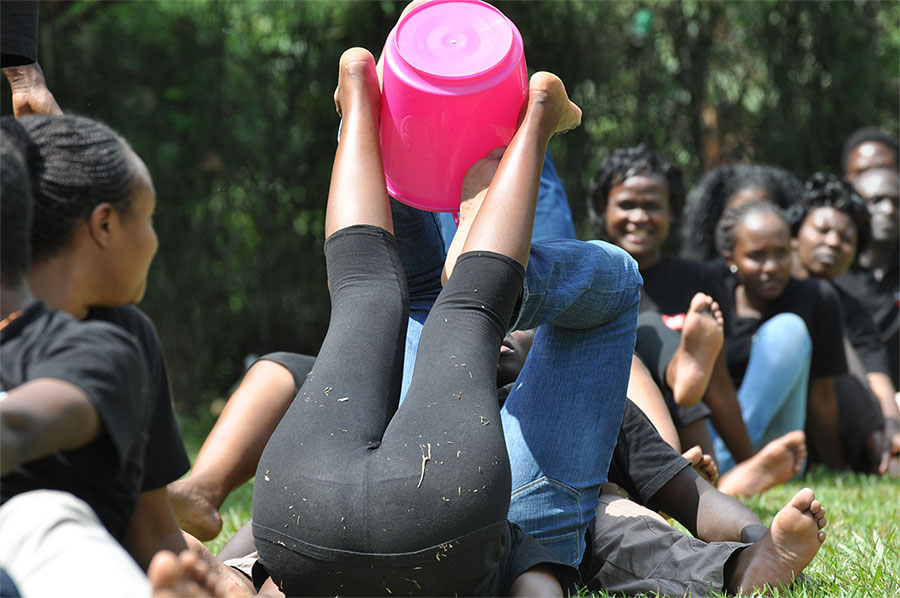
He continues: “Remember, in management, what you have is a leadership formula. If you are a transformative leader, then you have a formula and that says 100% of the governor is nothing compared to 1% of the whole county team. And vice versa. One percent of the teams is nothing compared to 100% of the governor. And that’s the meaning of teamwork.”
Prof Mpenda Kitabu
“How many of us watched Ineos 1:59 Challenge ? He asked himself and answered, “The successful 2019 project to break the two-hour mark for running the marathon distance was a marketing coup for Kenya”
The event featured a Kenyan athlete, Eliud Kipchoge, who was sponsored by Ineos, a multinational chemicals company, and held in Vienna, Austria, on 12th October 2019.
I would like us to put this into context of organizational productivity.
Unlimited what?
Prof Achoch, how do you interpret the “NO HUMAN IS LIMITED” mantra in organizational success ?”
I started by looking at corporate mantras as they focus employees’ attention on an organization’s reason for being. Effective mantras become a natural part of everyday conversation in the workplace and work their way into a corporation’s communication with the outside world.
Mantra is a Sanskrit word that describes when Hindu worshipers chant or sing as an incantation or prayer. In a secular setting, it means an often-repeated motto, slogan or truism that attains high status in the organization that adopts it. Like a watchword, a mantra should embody a group’s important principles.
If management is serious about creating a mantra that will accurately distill the corporation’s reason for existence into a few words, it should give full backing to the effort. Give it a high priority. Involve everyone. Make a contest out of it and offer a significant prize to the winner.
Read Also >> Effective ways to get storytelling managers to go straight to the point
The organization should make the final decision at the highest level. Then embrace the mantra and use it. If the process succeeds, everyone from the shop floor to the board room to will be aware of the corporate mantra.
The organization should publish marketing literature and corporate communication material, and find ways to weave the mantra into the writing. It should become a part of the spoken word in TV commercials. And should appear everywhere, like a logo. When the organization executives speak in public, they must use the mantra whenever doing so is appropriate.
The marketing department should be the guardian of the mantra and always be aware of how it is and how it is not being used.
The mantra should be a tool that helps the organization build and maintain a formal corporate strategy.
Corporate mantras should not be confused with mission statements or statements of vision regarding growth possibilities. Most mission or vision statements are too generalized and empty-sounding to be of much use. When the situation calls for a mission statement, however, it is good to have one.
Annual reports and business plans are such places. Good mantras are constantly visible in publications and on websites. You hear them in day-to-day conversations in the office. Mantras have focus. Mission statements do not
Prof Mpenda Kitabu
I am sure that you are aware of one Pierre-Simon Laplace who envisioned the Hypothetical “Laplace’s Demon” in 1814, an entity with infinite computing power that knows the exact location and velocity of every particle in the universe.
There has been speculation that if one had such abilities, the past, present, and future of the universe can be predicted. However, there are limits to even this kind of knowledge, and it may very well be impossible for mankind to ever find the much sought-after “Theory of Everything”.
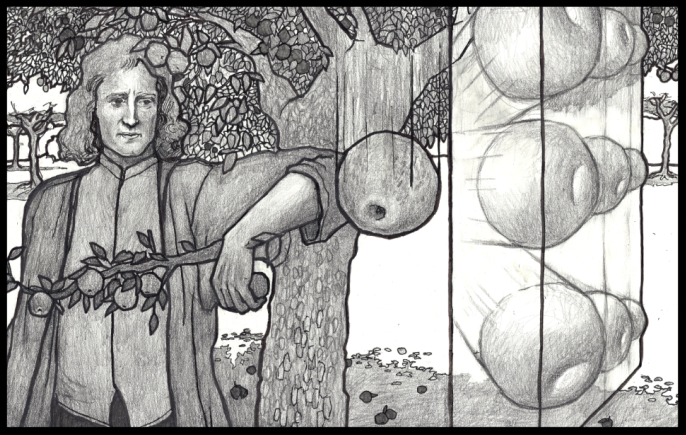
Does Laplace’s Demon hold proof of predestination? Could it even exist? Is our own Kipchoge challenging this position with his “NO HUMAN IS LIMITED” mantra?
Prof. Sakina-Mapenzi
I strongly believe there is no end to discovery. The continents have all been discovered, but everything on them and in them has not been. Perhaps, one day, humanity will have cataloged all of it. Perhaps there will come a time when we stop asking questions because we have all the answers.
But let us hope day never comes. Let us hope, we always have something to ask, something to explore, something to unmask, something to seek or find, to investigate and reveal. Having the answer to every question would be the death of us all – even our souls do not want that to happen!
“This is why I believe,” she stressed by making the sign of the cross “that God has created for us an infinite opportunity, not just in one but infinite life, that this and all universes, this and all dimensions, are endless, and that the vast complexity within it is contained our sustained eternal search for knowledge and answers.
Read Also >> Meet the Sex Spies and Sorcerers in organizations
Nobody really wants ALL of the answers, not really. Not even God. After all, who do you think created boredom? She asked a rhetorical question.
“Boredom” she continued “is the propellant of creation which produces limitless opportunities. What is a God with an end of purpose insight? It serves no one, not man and not God, to know all of it. One can BE all of it, but not know all of it, not be aware of all of it”.
Professor Kizito
“In my forthcoming book titled “What Are The Limits Of Human Knowledge?” I pose the question whether there are limits to HUMAN KNOWLODGE. My research findings reveal there are none. Except if you start to look at the degree to which one can undo the ‘human problem’ we’re all sharing. It also depends upon the boundaries you place upon knowledge and knowing itself.”
“In this way, all knowledge is constructed,” the management guru continued, “through a balance or an imbalance of unified and divisive thinking. Take a hard look at how your own mind works and you will see what I mean. This is a Deep Truth.
It can really only be argued to what degree what we are limited is true, as spiritual progress is a dissolution of all identifications, including with the mind and the body. “As one dissolves identifications”, the professor observed, “the more you can know, as your idea of self and other, knower and known, facts and context, will merge.”

The founders of the Quantum Mechanics principles can confirm, faced this problem quite head-on, and I find that few are willing to take up the implications of this knowledge: that we may more fully understand a wider range of things in the universe, and about ourselves. And these men were mainly looking at MATH. Imagine…!
So, in order to “know” more (I don’t mean facts), we must dissolve, to a greater and greater degree, our humanness; in favour of the timeless, infinite, unchanging self we actually are. As a management professor, what we’re going for is not knowledge as it is modernly referred to, which is generally indicative knowledge only. What we’re going for is: “The knowledge that, being known, nothing else remains to know.” Ego and ignorance alone restrict our methods of knowing. Thus you can see many problems in science remain unresolved due to the pure error of approach.
“Prof, as an expert in this area, can you summarize this discussion for us as I can see the National celebrations programme is about to begin on TV ” Prof Mpenda Kitabu voice had a sense of urgency.
Keep on keeping on
I started by giving my experiences on my evening walks from Rubia to Bomas of Kenya or Rubia to Mbagathi Road at the T-mall Junction whenever I am at my estate in Rubia, Langata area. I made myself a promise: Any time I felt like I wanted or needed to take a matatu, I’d ask myself, “Can you keep on keeping on?” And as long as the answer was yes, I wouldn’t stop.
I’d never used a mantra before. Mantras always seemed like something better suited to Millennials and Gym enthusiasts’ intentions than words actually worth repeating out loud (or even just in my head). But at every evening walk, I’d walk so far my brain checked out way before my lungs or my legs. I knew I needed something to keep me locked in if I wanted to stay on my goal pace and walk for two hours, which is usually my target.
See >> Brand Promise is Reflected in People and Machines
Eliud Kipchoge — the greatest marathoner of all time — wore his mantra, “no human is limited,” on a bracelet; you can see it the photos from London, where he set a new course record of 2:02:37, an insanely fast time second only to his world-record setting pace at the Berlin Marathon in 2018 (you can also see his bracelet in the photos from that day).
The magic of mantras
Professionals use mantras because they keep them engaged in the run, “When you’re briskly walking along Lang’ata Road, your brain is taking in a massive amount of data: the scenery, the weather, fellow walkers, runners, your thoughts, your emotions, how your body feels, whether you’re hitting your pace, etc.”
When I am uncomfortable, I have discovered I tend to focus on the negative — how heavy my legs feel or how strong the wind is in my face.
But science shows that focusing on that will negatively impact your rate of perceived exertion (how hard an activity feels). Mantras help us cue into something positive that is occurring or that we want to occur, I went on to explain to my colleagues. They also prime us to experience or notice positive emotions that can help us think more productively about the task at hand.
Motivational self-talk reduces the perceived rate of exertion and increases endurance.
Can a few words really be powerful enough, though, to help you walk faster or longer — or both? I ask myself. There’s a lot of evidence that backs up the power of motivational self-talk. It is one of the psychological skills (along with imagery and goal-setting) shown to boost athletic endurance in an examination of more than 100 sources published in the journal Sports Medicine
Positive self-talk is also linked to improved performance in an earlier meta-analysis. Motivational self-talk also reduces the perceived rate of exertion and increases endurance.
The utilization of mantras has many positive impacts on one’s emotional, physical, and psychological well-being. That said, it takes time, intention, and continuous utilization of mantras to assist in impacting one’s performance.
Mantras are personal and situational. “No human is limited,” has worked for Kipchoge during his races; Organizations may need something similar to keep them moving. To figure out what might work for them, as part of their organizational competition survival preparation, they must think back to the toughest start-up challenges and make a mental note of how they conquered them.
The art of developing mantra
That can cue the Organizations into whether they need a motivational statement for staff, such as ‘We are strong, We can do this’. Or something that helps organizational staff to accept discomfort, such as “this is normal for this part of the competition, every company feels this way right now,”
Then, make sure organization mantra connects to employee passion and purpose. Find the emotion you want to embrace within your organizational performance domain and develop words that evoke that emotional response.
Say it out loud, write it down, listen to it, live it. You need to believe in the mantra and connect to it for optimal benefit.
In the post-Liberalization, Privatization, Globalization (LPG) era and technological changes, today’s employee is treated more than an employee. The concept like “Mantra” is rapidly gaining popularity in the workplace. In the 21st Century, many companies and research firms see Mantra as a powerful source of sustainable competitive advantage. For organizational excellence, employee engagement is the mantra of success to achieve organizational goals and vision.
Employee engagement is a winning formula for making organizational excellence. Organizations today are increasingly dependent on knowledge creation and human development for their optimal and sustainable growth. To meet the challenges resulting from global competitiveness, they need to demonstrate world-class performance, re-examine the drivers of organizational performance through a sexy mantra like the one of Eluid Kipchoge.
Tapping human capital
Human capital is a key asset distinctly different from other assets of the firms. It consists of employee’s skills, competencies, commitment, motivation and loyalty, problem-solving capability, innovation, knowledge, and attitude.
The human capital, if developed and motivated through a mantra which is nurtured appropriately, also drives organisations towards developing other assets or capabilities necessary for growth and development.
My long summary made us miss most of the speeches given by the dignitaries but we were lucky enough to witness Eluid Kipchoge receive his honour by being decorated with a sash. It was time to continue developing the county programme.
Next Read >> This deadly way of motivating employees works magic

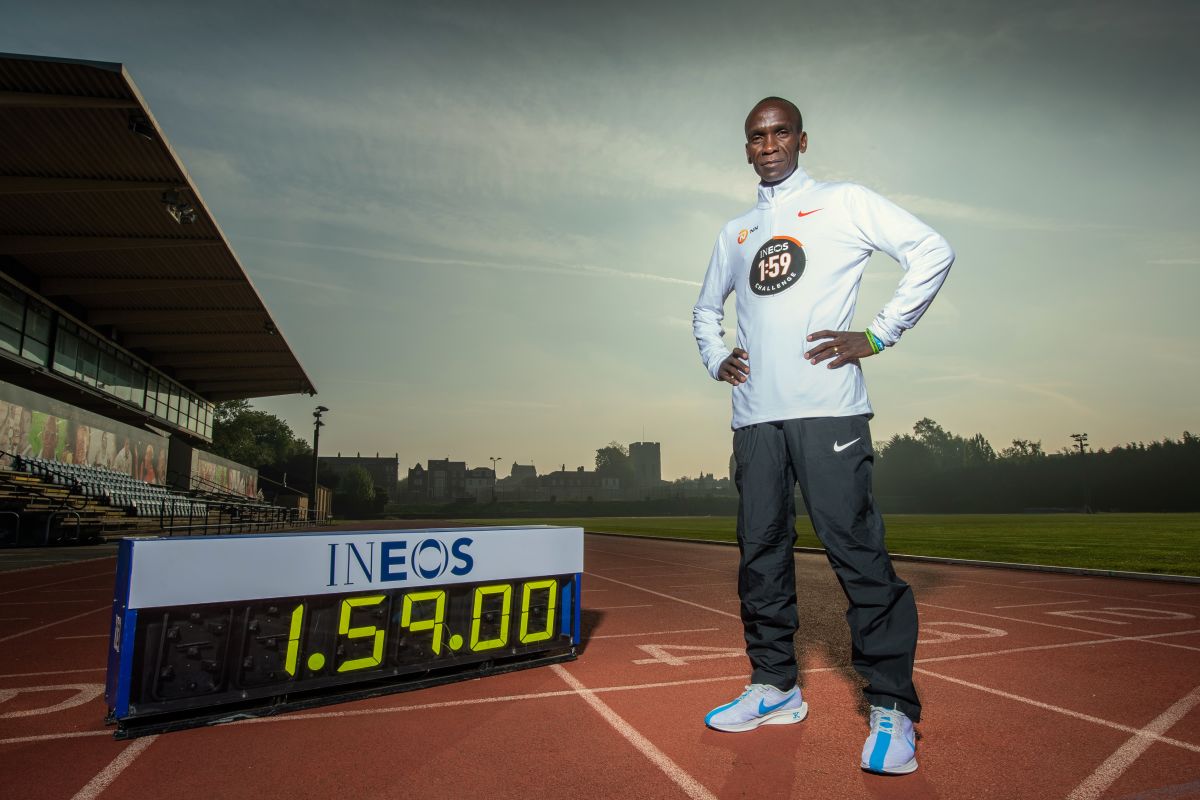







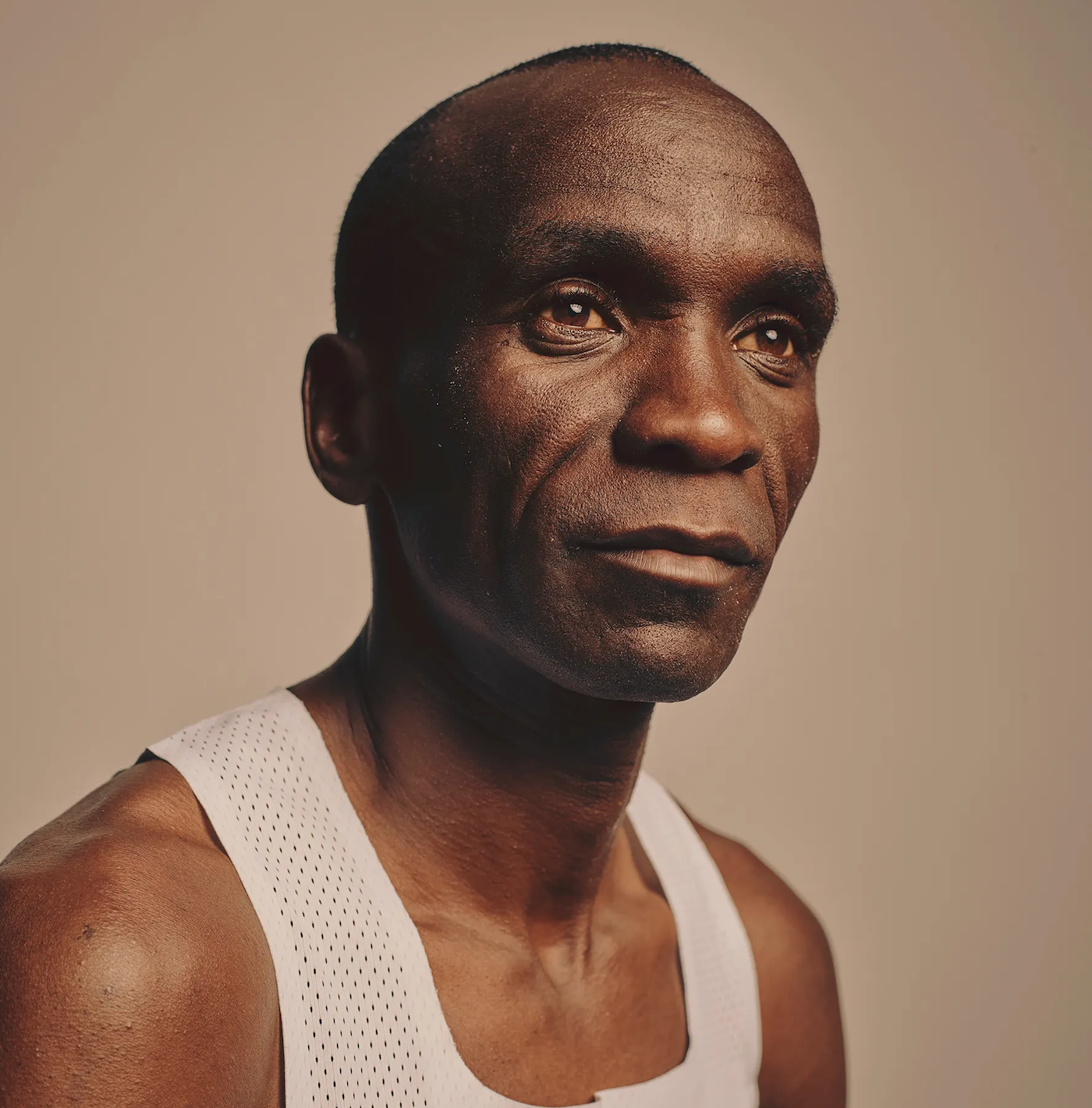
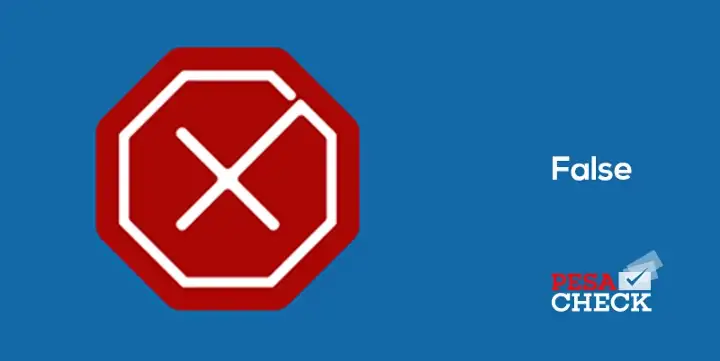
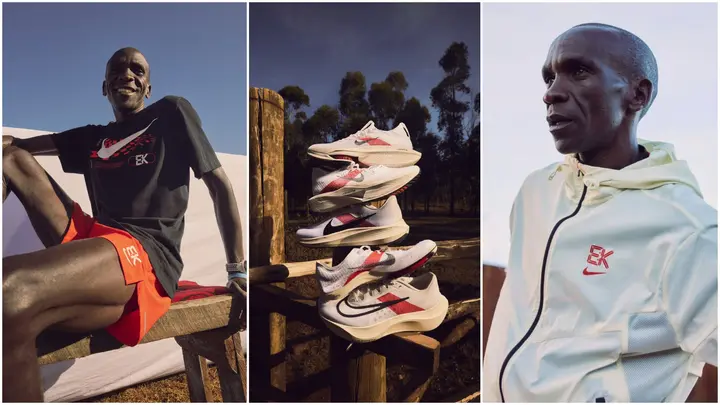

Leave a comment